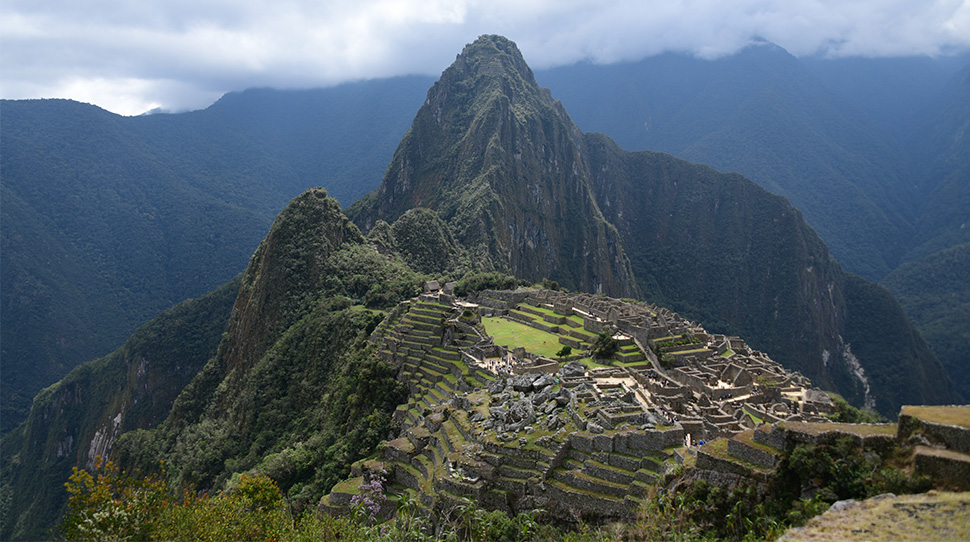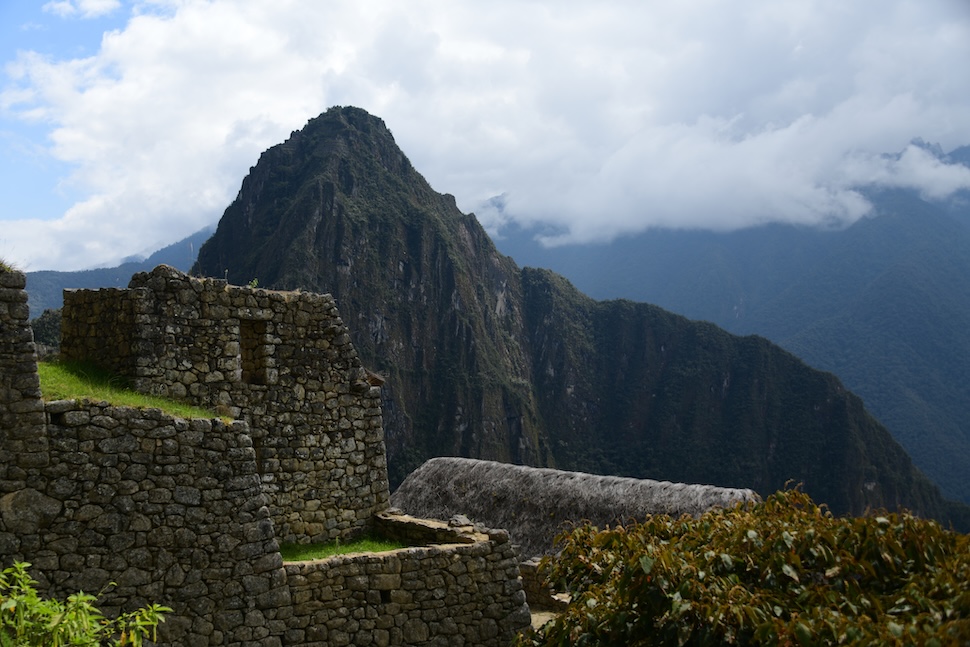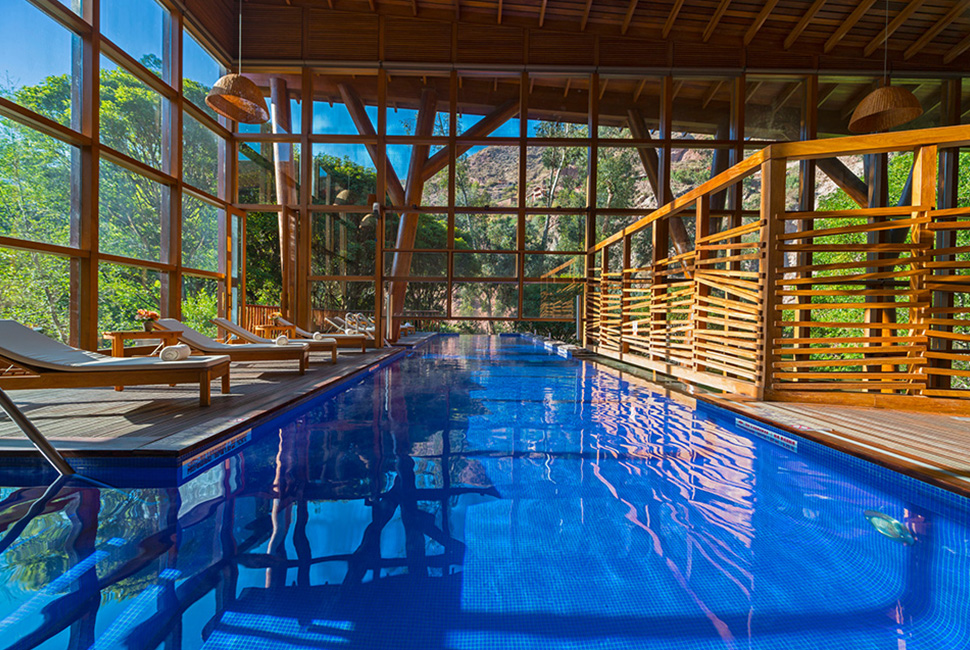

This is the third in a four-part journey exploring Peru’s dramatic landscapes — from captivating cities to pristine coastlines to towering Andean peaks. (Read parts one and two.)
Perched 8,000 feet above sea level, Machu Picchu isn’t just Peru’s most coveted destination — it’s a portal to another time. The 15th-century Inca citadel is a UNESCO World Heritage Site, one of the new seven wonders of the world and the country’s most popular attraction. While numerous scholars believe the once-hidden site was a retreat for Inca royalty, Machu Picchu’s true purpose remains unknown. Locals still whisper of ancient spirits that wander these stone corridors, keeping watch over a fortress that remained largely forgotten until its fateful 1911 rediscovery.
The rich lore and the remarkable landscape are why more than 1.4 million people visited Machu Picchu last year, according to the Ministry of Foreign Trade and Tourism of Peru. If you plan to experience this transformative destination, here’s the best way to do so.

The Journey to Machu Picchu
One of the reasons to stay at Tambo del Inka, a Luxury Collection Resort & Spa is its private train station that’s only a five-minute walk from the lobby, making for an effortless start to your Machu Picchu adventure. We headed there early one morning to catch the cobalt-blue PeruRail Vistadome, which during its journey gives you a startling panorama of the Sacred Valley.
For the first hour, our carriage was nearly empty. Through the train’s panoramic windows, we watched the sun’s rays slowly envelop the craggy mountains. The ride was meditative, as the quiet train chugged along the Urubamba River past grazing crows, andenes (ancient stone-walled terraces carved into steep hillsides) and snow-topped Veronica mountain (the tallest peak in the Urubamba range).
Savor as much of the tranquil scenery as you can because the return trip takes on a different vibe. Instead, the train takes on the makings of a runway show, with staff strutting down the aisle in soft baby alpaca ponchos and sweaters for sale. You’ll get invited to visit the Bar Car, where bowtie-sporting musicians, including a drummer and two guitarists, play vibrant traditional songs while performers in colorful regalia dance. Then you’ll head to the Observatory Car, a popular carriage with 360-degree vistas and a balcony.
Once you arrive in Aguas Calientes, the gateway city to Machu Picchu, your hotel-arranged guide will meet you at the station exit. Together you’ll join the procession of pilgrims boarding buses for the final ascent — a serpentine 25-minute, five-mile journey up numerous switchbacks. Try to snag a window seat for views of the verdant surroundings.

Climbing Machu Picchu
After waiting in line for park entry, you’ll take one of three circuits (which have varying routes to prevent overcrowding). Choosing a circuit will depend on your interests and how rigorous a hike you want. If you are coming for photos, circuit one offers a vantage point overlooking the entire site against a dramatic Andean backdrop. Circuit two brings you into some of the ruins, while circuit three takes you to rarefied spaces once reserved for Inca royalty and is the most physically challenging option.
Whichever you choose, you’ll be humbled by the awe-inspiring beauty and design of the more than 92,000-acre architectural feat. The guide will tell you about the history of the site, from its origins as a community of 500 Incans to discoveries of more than 100 skeletons by explorer and Yale history lecturer Hiram Bingham (who supposedly inspired the character Indiana Jones) when he stumbled upon Machu Picchu in 1911. But you’ll also learn that today its only residents are spectacled bears, pumas, mountain lions and condors. And if you come in June, you can see more than 400 orchid varieties bloom throughout the grounds.

Unwind in the Sacred Valley
Machu Picchu may be the reason for visiting this part of Peru, but the region’s soul-stirring beauty and culture will convince you to stay longer in the Sacred Valley. Tambo del Inka gives you many ways to unwind after a Machu Picchu trek while still taking in the valley’s diverse topography and rich heritage.
You’ll be tempted to grab a cup of coca tea (it helps with altitude sickness) and settle into a plush seat in the wood-covered lobby, amid soaring ceilings and walls of windows. But you’ll also want to explore the lush 27-acre property.
The Mayu Pata Lunch gives you a private meal along the Urubamba River amid rugged red peaks. Next to your wood picnic table, the chef grills up vegetables, local cheese, red trout and uchucuta, a rocoto chile-based sauce. Wash it down with Inca Kola, a sweet, neon-yellow soda that’s popular in Peru.
Another private, dining-in-nature option is the Garden-to-Table Experience. On the edge of the property, you’ll find a sprawling 16,145-square-foot organic garden that grows 80% of the luxury hotel’s produce. As you wander the rows of purple lettuce, mint, leeks and more, the chef uses the bounty to cook up your multicourse meal under a pergola. You’ll sit in a shady spot near the river, facing Chicón Mountain, and enjoy dishes like trout with fried garlic slices, chicken doused in a light gravy with cabbage strands and zucchini, and beef accompanied by baby corn, asparagus and peppers. It’s a filling lunch but save room for the finale: cinnamon-laced tres leches topped with toasted walnuts and the fragrant mint, chamomile and anise tea.
You’ll take most of your meals at Hawa, an all-day restaurant that serves a mix of traditional Peruvian, new Andean cuisine and international fare. In the morning, a musician plays the harp and other traditional instruments in the stone-walled space — visit the buffet’s “Andean station” to sample local dishes, like warming quinoa soup. For dinner, start with the corn pie appetizer, a delicious heap of slightly sweet, large-kernel valley corn with mushrooms, truffle oil and grana padano cheese foam. Then move on to the fettucine with huancaina, a spicy cheese sauce, along with lomo saltado, stir-fried beef with tomatoes, onions, cilantro and yellow chili.

For a more casual dinner or drinks, follow the candle-lined path to La Cervecería, where you can enjoy sustainably made local craft beer, like the Inka’s Blood, whose red hue comes from beetroot, and Eve of the Valley, with an emerald shade from spirulina and seaweed. We went there during beer night, an outdoor gathering with artisanal pizzas and a live band.
On that note, be sure to check out the hotel’s robust calendar of events. We happened upon an evening show near our room’s patio with mesmerizing stilt-walkers in elaborate costumes and other performers dancing to live music.
For relaxing pursuits, try the hotel’s Kallpa Spa, which incorporates Andean ingredients like coca leaf, muña (Andean mint) and Maras salt into treatments. Housed within glass walls to provide views of the surrounding trees and mountains, the heated indoor pool spills outside so you can swim closer to nature. But after a day of hiking in Machu Picchu, opt for the hydrotherapy circuit. You get the facilities — including underwater loungers, a cold plunge, a hot tub and various water-jet stations — to yourself for 60 minutes. The hydromassage soothes hiking-weary muscles. You’ll return to your spacious wood- and Inca-print-filled room eager for rest but ready for more adventures tomorrow.
